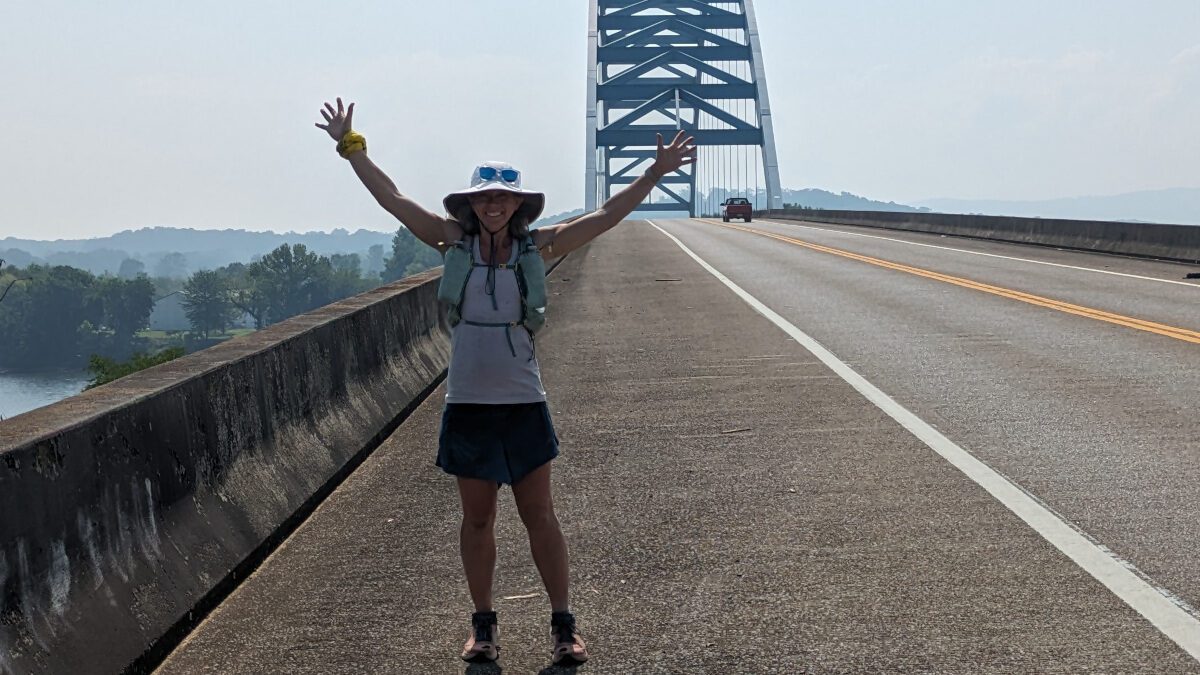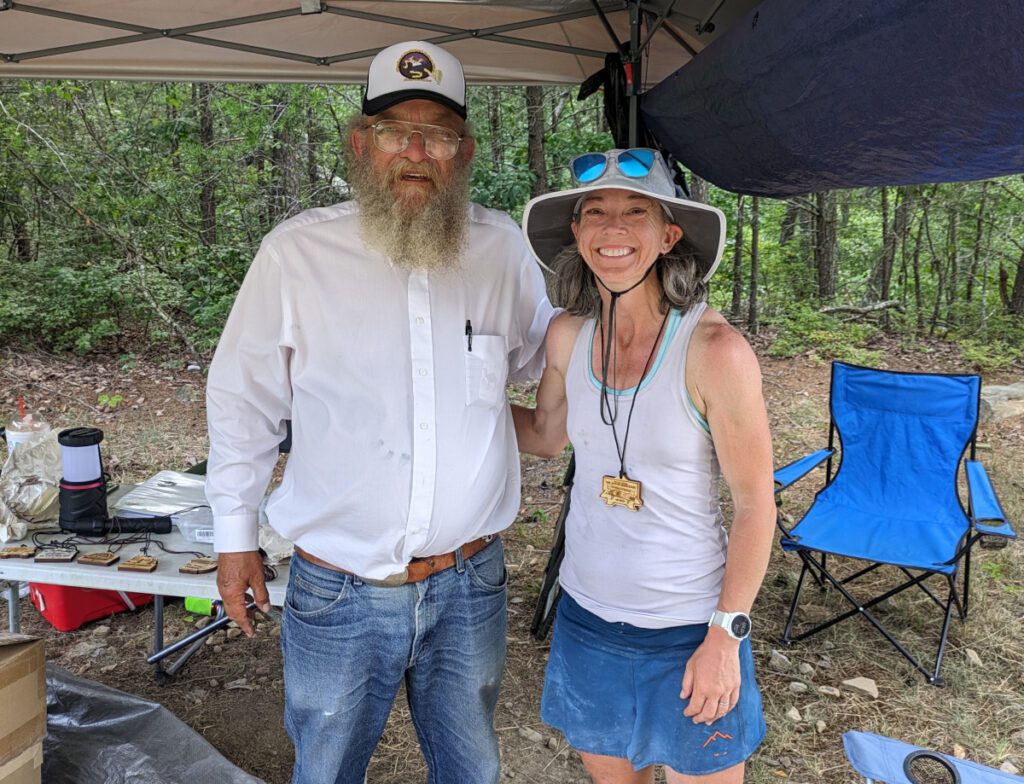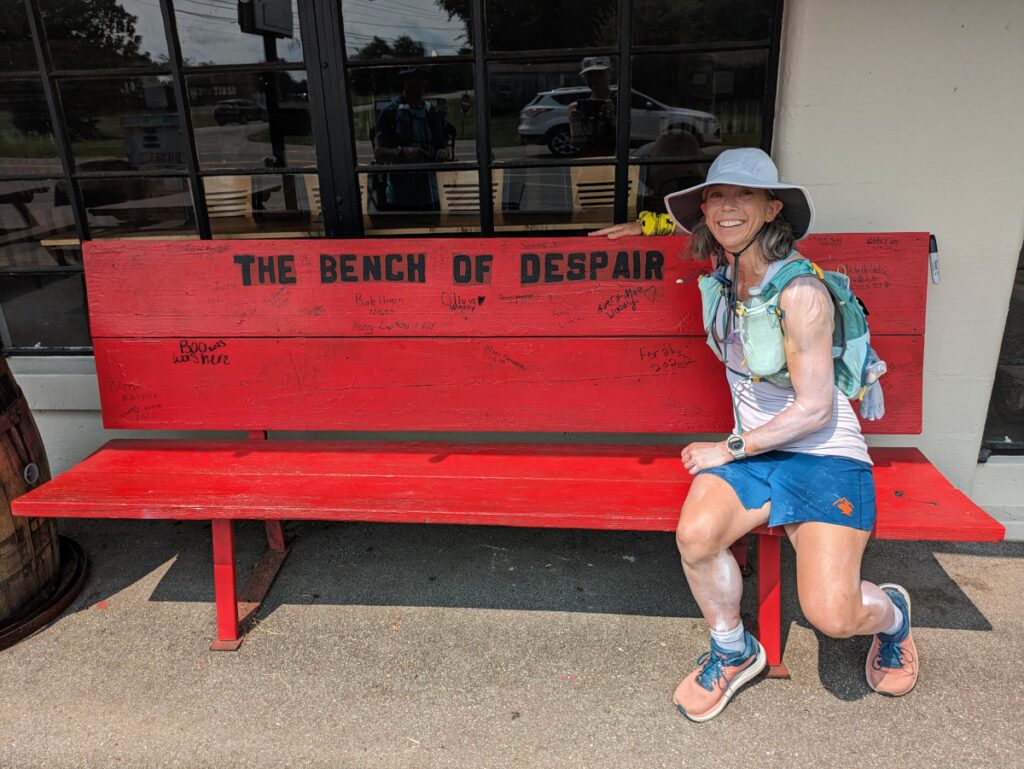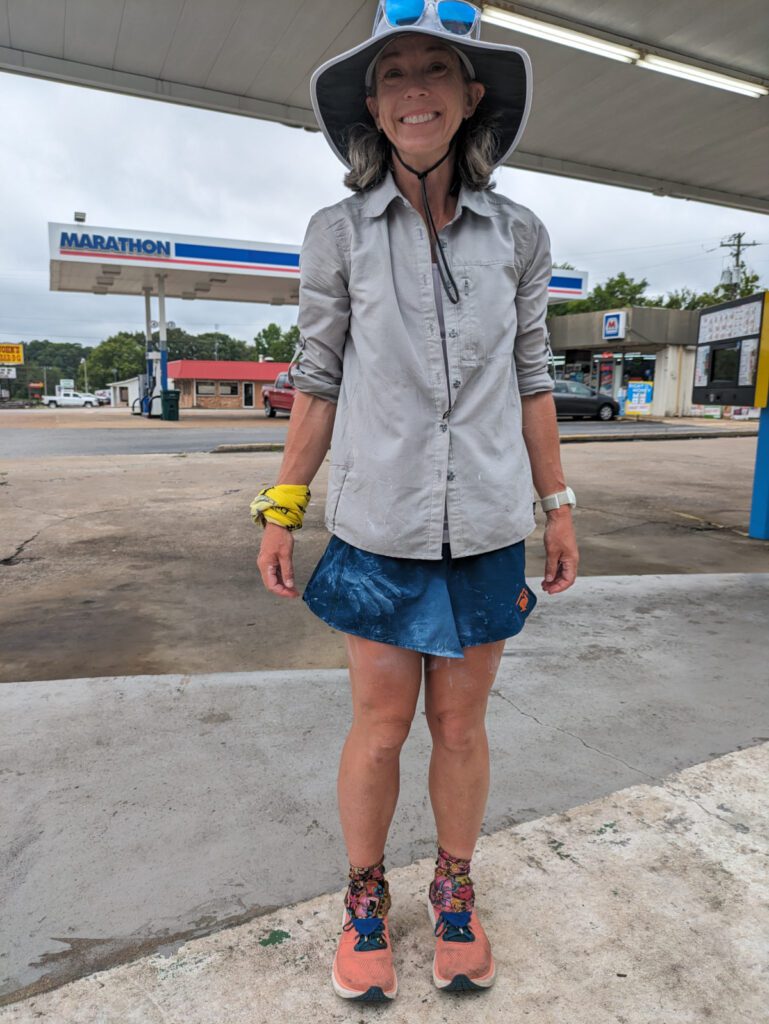Canadian woman finishes second at Vol State 500K
Former 100-mile record holder Michelle Leduc said burnout from competition pointed her toward a strange, new path in Tennessee
 Photo by:
courtesy of Michelle Leduc
Photo by:
courtesy of Michelle Leduc
Canadian ultrarunner and coach Michelle Leduc has channeled her passion for tackling new adventures into success at one of North America’s most notoriously punishing ultra road races, taking second place among women and finishing ninth overall at this year’s Vol State 500K.
Leduc, of Russell, Ont., completed the multi-day race—a cross-Tennessee odyssey over hills, highways and backroads that kicked off July 12 with a ferry ride across the Mississippi River, from Missouri to Kentucky, and ended in northeast Georgia—in five days, six hours, 18 minutes and 22 seconds. Leduc staked her place on the women’s podium between first-place finisher Mary Nienaber of Indiana (5:03:45:20) and Kimberly Durst (5:09:45:44) of North Carolina. All three completed the race uncrewed—or “screwed,” to use the terminology of race director Laz Lake (a.k.a. Gary Cantrell).

Claiming the race’s top three spots overall were Ken Zemach of Nevada (3:17:03:22), California’s Bob Hearn (3:22:53:51) and Iain Jones of Tennessee (4:16:46:25). Toronto’s Emmanuel Ronchin ran 5:10:06:14 to round out the men’s top 10 and place 13th overall.
Leduc, who previously held the Canadian women’s 100-mile and 12-hour records, said she became drawn to the Vol State 500K on the heels of a period of intense competition in her running career.
“I’d been wanting to do this race for about five years, but with a couple of injuries and COVID getting in the way, it just took a while,” she told Canadian Running. “I was just burned out from running 100 milers, from that pressure to place at the top. I just wanted to change things up and just go for the adventure and the challenge.”

Runners have 10 days to finish the race, meaning they have to cover at least 50K per day if they want to make it to Georgia in time. There are no aid stations or volunteers along the course, but runners have the option of racing with a support crew (although some racers choose to run unsupported). Tennessee was called the “Vol” (volunteer) state during the War of 1812, thanks to the enthusiasm of its militia.
Leduc said the race more than delivered on its promise of adventure, not to mention adversity, which included “endless traffic, heat from the blazing sun, stink from the road kill and trash, sleep deprivation, sweat, chafing, eating gas station food, feet aching from the continuous pounding on the asphalt.” Of these, the lack of sleep posed the toughest challenge, she said. “I call it the Witching Hour. At around two in the morning, your body just says it’s done, and you’re fighting the hallucinations. You’re staggering around, feeling drunk. Fighting through that was the toughest part.”
Ultrarunner sets women’s course record, wins overall Vol State 500K crown
Race organizers’ crackdown on littering meant Leduc and other runners needed to be very careful about handling their trash. In fact, this year saw Addison Hendricks of Florida, who was poised to finish third overall, become the first runner in the race’s history to be disqualified for littering. “I got pretty good at carrying trash, and got pretty creative,” said Leduc, “tucking things into the straps of my hydration vest and holding onto it until the next garbage bin.”

The 47-year-old said while the race lived up to its reputation in terms of challenges, so did the kindness of strangers—dubbed “Road Angels“—Leduc encountered along the way. “I experienced the kindness of strangers offering water, snacks and a place to rest our weary bodies. The drivers who knew of the event blasted their horns and provided words of encouragement.”
With her strong finish at Vol State behind her, Leduc said she plans on cooling her heels and taking some time to consider where running will take her next. “I’m trying to figure out what to do, because after doing something so epic, I don’t know if I want to run 100 miles again,” she said. “I like the idea of taking on some FKT and multi-day adventures, but I’m also working on building a running club, and I’m starting to do clinics. I find being on the other end, helping others to the finish line, just as rewarding as crossing it myself.”

